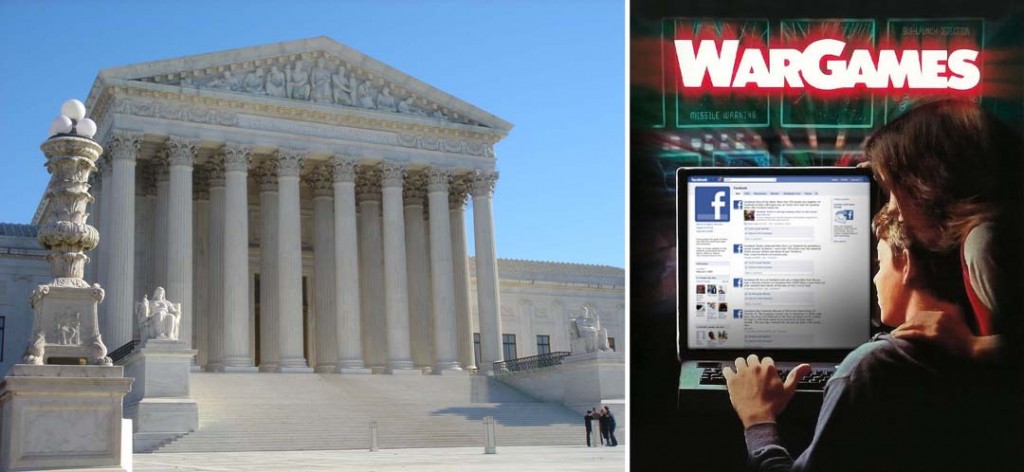It’s called the Computer Fraud and Abuse Act, and it’s one of the most controversial laws in the United States at the moment. Written in 1986 the law was inspired by the paranoia that spread through Washington and across America brought on in part by the 1983 Matthew Broderick film WAR GAMES. Back then both Washington and the general public were just beginning to come to terms with the fact that anyone with a computer could wreak havoc on government computers so the law was introduced.
Business Insider recently profiled the implications of the law which is at the centre of a number of legal battles across the country. Professor Stephanie Greene and Professor Christine Neylon O’Brien teach law at the Boston College Carroll School of Management, and in a paper entitled Exceeding Authorized Access in the Workplace: Prosecuting Disloyal Conduct under the Computer Fraud and Abuse Act (American Business law Journal; Vol.50; November 29, 2012) they open with the following abstract: “If you spend time at work checking Facebook or shopping online you might be violating your employer’s computer policy. But you might also be committing a federal crime. For the past decade or so, courts have disagreed over the scope of the Computer Fraud and Abuse Act. Some courts have found that an employee who violates a workplace policy, breaches a contract, or breaches a duty of loyalty to his employer may be both civilly and criminally liable under this Act. Computers provide new opportunities for distraction at work; they also provide opportunities for dishonest behavior. While some behavior is clearly criminal, it is not always clear what type of behavior should be criminal under the Act, particularly as social norms about workplace habits and computer use are constantly evolving.”
The abstract finishes with: “This article focuses on the variety of ways courts construe the Computer Fraud and Abuse Act which criminalizes some types of access to computers, detailing how courts continue to struggle with an accepted interpretation of what is, and what is not, criminal. A recent highly anticipated case, the Ninth Circuit’s en banc United States v. Nosal decision, reflects this discord. In a 9-2 decision, the court held that the ambiguous criminal statute should be given limited applicability because its general purpose is to punish hacking rather than acts such as misappropriation of confidential information. The decision expresses concern that a broad interpretation of the statute would criminalize a range of acts we all engage in on employer networks. The Ninth Circuit’s interpretation creates a notable split of opinion with the First, Fifth, Seventh and Eleventh circuit courts of appeal. More recently, the Fourth Circuit followed the reasoning of the Ninth Circuit’s narrow interpretation theory thereby furthering the division of opinion on this issue.” (you can download the full 38-page PDF by CLICKING HERE).
It appears, therefore, that even though the appeals court tried to limit the scope of the law, Business Insider reports the “decision contradicted rulings issued by various other federal appeals courts, meaning the uncertainty still stands.” So as of right now if you live in the United States and your employer wanted you fired for checking your Facebook or shopping on Amazon they could easily do so. And if they wanted to they could even take you to Federal Court where a judge would have to determine if you deserve to spend the rest of your life behind bars. So before they wheel you off to the clink you might want to update your Facebook status to: “Just bought myself some soap-on-a-rope on Amazon. Ready to serve my 10-15 years without getting ass-raped in the prison shower.”
It is estimated that employees’ time and productivity wasted on Facebook, Twitter, and other social networks costs the American economy more than $650 billion per year.
SEE ALSO: “A Dangerous World”: Watch Charlie Rose’s Chilling David Sanger Interview About Obama’s Secret Wars


